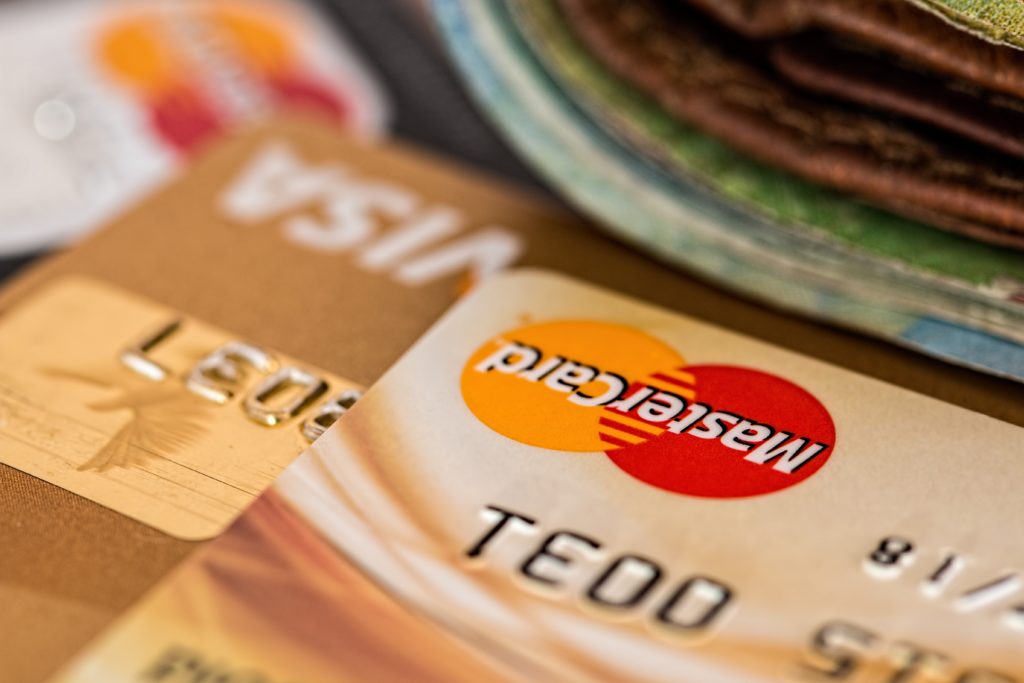As the rising cost of living continues to stretch budgets with little signs of slowing down, it can be an extremely worrying time for many households across the country. This is especially true for families and can create questions that are difficult for parents to answer.
Parents naturally want to protect their children from any worries or anxieties about the world, but it’s all too easy for children to pick up snippets of what’s happening in the news in various aspects of their life – whether it’s from the playground or conversations overheard at home.
Rhiannon Philps, a personal finance expert at NerdWallet, believes that, rather than avoid the difficult conversations altogether, it’s best to talk to children and help them gain a better understanding of the current climate, as it may help them feel more at ease hearing it one to one from a trusted parent or guardian.
Below, Rhiannon discusses how parents can tackle the topic of money with young family members, and how to be realistic about any financial sacrifices parents may need to take over the coming months:
Strike the balance
“Honesty is always the best policy, and while ensuring your child is aware of the realities of the rising cost of living is important, it is also crucial to avoid unnecessary panic or worry, and strike the right balance between explaining the seriousness of the situation without alarming them.
“At the moment, while it is not necessary for a child to be too concerned about the intricate details of budgeting and saving, it’s a good idea to make your child aware of the increase in heating, petrol, groceries, and other essential items.

“Be clear with children if the current climate means you have to cut back on some of their favourite brands at the supermarket, or if you need to take them to more budget-friendly clothing stores to pick out new items. Reassure them – but don’t promise – that this should only be temporary and help them to understand how important it is to appreciate all that they do still have, rather than what they don’t.”
Be realistic
“It’s wise to prepare them sooner rather than later as certain sacrifices may need to be made over the coming months, like cutting back on weekend or half-term activities, such as swapping pricey pastimes like a cinema trip for a day exploring local walks or visiting a local free-entry museum.
“This will hopefully help children realise that parents don’t have access to unlimited wealth and that you don’t need to spend a lot of money in order to have a fun time as a family.”
Be wary of shock value
“More often than not, children will consume a lot of information from their peers or social media platforms which can often be written to shock and generate headlines. Both of these are notorious for exaggerating or expanding on the facts of a story or subject, and should not be how a child is gaining knowledge of the current crisis.
“Depending on their age, sit your child down for an honest conversation on the issues that are most concerning to them, and try your best to reduce any concerns or worries that they have heard from peers or online.
“Point them in the direction of child-friendly websites or programs that help outline the most pressing issues in easy-to-digest language, and reassure them that you are always available to answer or tackle any questions or concerns they have.”
Teach them about budgeting
“Parents can use the cost of living crisis as an opportunity to educate children on the importance of budgeting and saving for a rainy day. Highlighting different issues surrounding inflation, energy bills, how interest rates affect things like mortgage repayments and credit cards, and even how inflation works will give them a better perspective on the crisis and is something they are unlikely to be exposed to within school settings.
“For older children, this is also an opportunity to help guide them to set up their own financial accounts, such as a children’s bank card or a prepaid card. This can help them learn how to budget, manage their finances, and understand the satisfaction associated with saving money to purchase something for themselves.
“While some children are simply given pocket money or an allowance, now is a great opportunity to appoint age-appropriate chores in order to actually earn the money themselves.”
Involve children in making cost-effective savings around the house
“Budgeting doesn’t have to be boring, and there are a multitude of ways you can involve children with budgeting tasks around the house.
“Try setting children a task to plan budget-friendly meals with a certain amount of money, or get them involved in cooking large batches to freeze for a later date as this helps teach them an effective way to save money and reduce food waste which will be beneficial in later life.
“In order to help them understand the energy crisis a little more, it’s also worth setting them the task of ensuring no electronic devices or switches are left on unnecessarily around the house – which can also be incentivised with rewards.”





28 comments
I love visiting sites in my free time. I have visited many sites but did not find any site more efficient than yours. Thanks for the nudge!
You have a real talent for writing unique content. I like how you think and the way you express your views in this article. I am impressed by your writing style a lot. Thanks for making my experience more beautiful.
Outstanding article! I want people to know just how good this information is in your article. Your views are much like my own concerning this subject. I will visit daily your blog because I know. It may be very beneficial for me.
You have a real talent for writing unique content. I like how you think and the way you express your views in this article. I am impressed by your writing style a lot. Thanks for making my experience more beautiful.
I have read your article couple of times because your views are on my own for the most part. It is great content for every reader.
I went to this website, and I believe that you have a plenty of excellent information, I have saved your site to my bookmarks.
I went to this website, and I believe that you have a plenty of excellent information, I have saved your site to my bookmarks.
I love visiting sites in my free time. I have visited many sites but did not find any site more efficient than yours. Thanks for the nudge!
It is an excellent blog, I have ever seen. I found all the material on this blog utmost unique and well written. And, I have decided to visit it again and again.
I am constantly surprised by the amount of information accessible on this subject. What you presented was well researched and well written to get your stand on this over to all your readers. Thanks a lot my dear.
Your content is nothing short of bright in many forms. I think this is friendly and eye-opening material. I have gotten so many ideas from your blog. Thank you so much.
If more people that write articles involved themselves with writing great content like you, more readers would be interested in their writings. I have learned too many things from your article.
I am constantly surprised by the amount of information accessible on this subject. What you presented was well researched and well written to get your stand on this over to all your readers. Thanks a lot my dear.
There are a lot of blogs over the Internet. But I can surely say that your blog is amazing in all. It has all the qualities that a perfect blog should have.
Your blog has piqued a lot of real interest. I can see why since you have done such a good job of making it interesting. I appreciate your efforts very much.
I have read your article couple of times because your views are on my own for the most part. It is great content for every reader.
There are a lot of blogs over the Internet. But I can surely say that your blog is amazing in all. It has all the qualities that a perfect blog should have.
There are a lot of blogs over the Internet. But I can surely say that your blog is amazing in all. It has all the qualities that a perfect blog should have.
Whenever I have some free time, I visit blogs to get some useful info. Today, I found your blog with the help of Google. Believe me; I found it one of the most informative blog.
I went to this website, and I believe that you have a plenty of excellent information, I have saved your site to my bookmarks.
You have beaten yourself this time, and I appreciate you and hopping for some more informative posts in future. Thank you for sharing great information to us.
If more people that write articles involved themselves with writing great content like you, more readers would be interested in their writings. I have learned too many things from your article.
Well-Written article. It will be supportive to anyone who utilizes it, including me. Keep doing what you are doing – can’t pause to read more posts. Thanks for the precious help.
I am constantly surprised by the amount of information accessible on this subject. What you presented was well researched and well written to get your stand on this over to all your readers. Thanks a lot my dear.
Only strive to mention one’s content can be as incredible. This clarity with your post is superb! Thanks a lot, hundreds of along with you should go on the pleasurable get the job done.
Your content is nothing short of bright in many forms. I think this is friendly and eye-opening material. I have gotten so many ideas from your blog. Thank you so much.
Well-Written article. It will be supportive to anyone who utilizes it, including me. Keep doing what you are doing – can’t pause to read more posts. Thanks for the precious help.